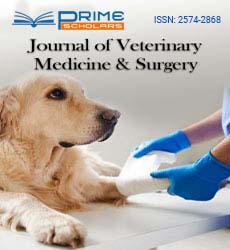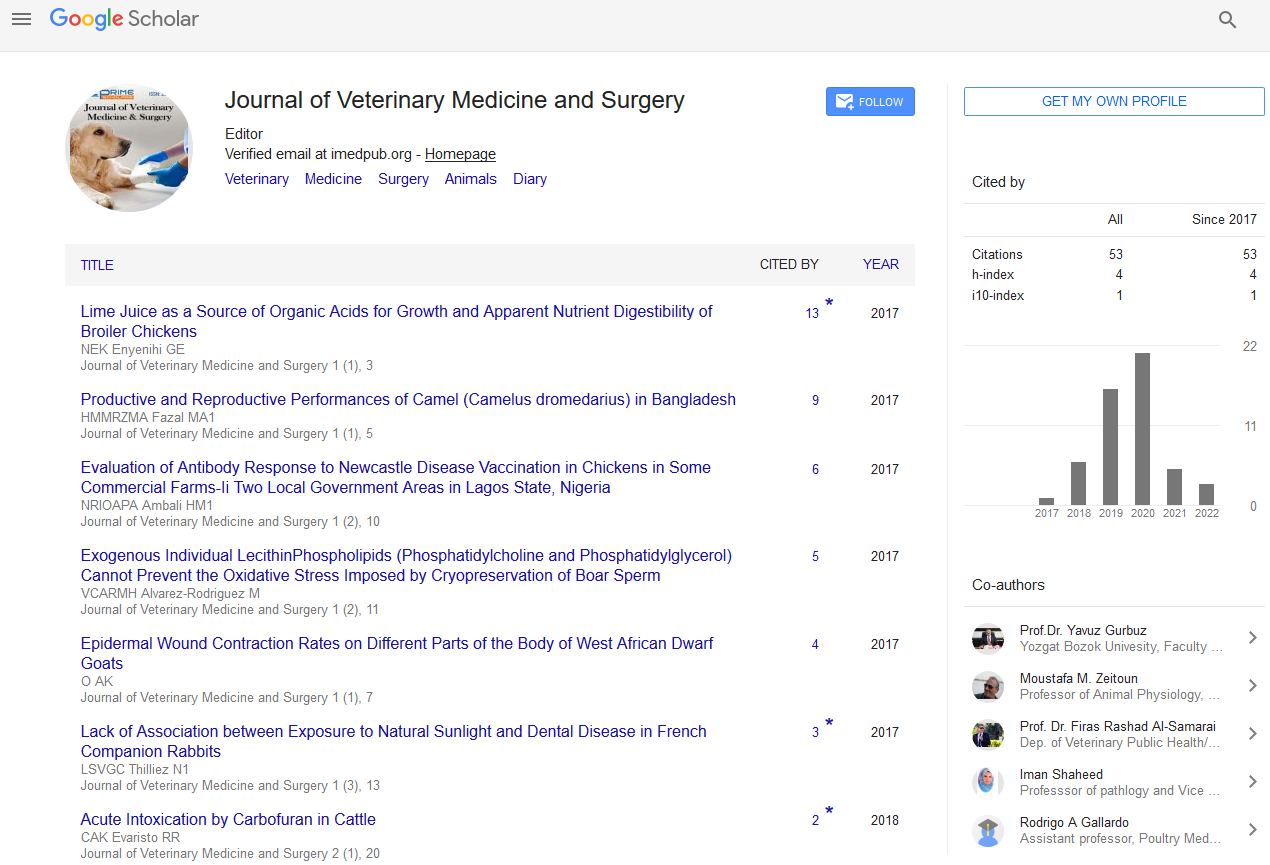Commentary - (2024) Volume 8, Issue 4
Veterinary Virology: Understanding Animal Viruses and Their Impact on Animal Health
Wei Zheng*
Department of Virology, Rikkyo University, China
*Correspondence:
Wei Zheng,
Department of Virology, Rikkyo University,
China,
Email:
Received: 02-Dec-2024, Manuscript No. IPJVMS-24-22179;
Editor assigned: 04-Dec-2024, Pre QC No. IPJVMS-24-22179 (PQ);
Reviewed: 18-Dec-2024, QC No. IPJVMS-24-22179;
Revised: 23-Dec-2024, Manuscript No. IPJVMS-24-22179 (R);
Published:
30-Dec-2024, DOI: 10.36648/2574-2868.8.4.40
Description
Veterinary virology is a specialized field within veterinary
science focused on the study of viruses that infect animals.
These viruses can affect a wide range of animal species, from
livestock to pets, and even wildlife. Understanding veterinary
virology is crucial for diagnosing, preventing, and controlling
viral diseases that threaten animal health, agricultural
industries, and public health. Veterinary virologists study
the structure, classification, replication, and pathogenicity
of animal viruses. By examining these viruses, scientists can
identify the mechanisms through which they infect animals,
how they spread, and how to develop vaccines and antiviral
treatments. In addition, veterinary virology plays a significant
role in understanding zoonotic diseases viruses that can be
transmitted from animals to humans such as avian influenza
and rabies. The research in veterinary virology is essential for
addressing the threats posed by emerging viral diseases. Viruses
are constantly evolving, and new strains can sometimes jump
between species, causing outbreaks. An example is the swineorigin
H1N1 influenza virus, which caused the 2009 global
pandemic. Veterinary virologists work closely with public health
experts to monitor animal populations for signs of potential
zoonotic viruses and mitigate the risk of human transmission.
Several viral infections affect animals, leading to varying
degrees of morbidity and mortality. The field of veterinary
virology has seen significant advancements, particularly with
the development of molecular techniques like Polymerase
Chain Reaction (PCR) and next-generation sequencing (NGS).
These technologies allow for rapid virus detection, genome
sequencing, and better understanding of viral evolution. Such
advancements enable faster diagnosis and targeted control
measures. Vaccination is one of the most effective ways to
control viral diseases in animals. Veterinary virologists continue
to develop and improve vaccines to protect against a wide
variety of viral infections. In addition to vaccines, antiviral drugs
and therapeutic approaches are being explored, although their
use in veterinary medicine is still limited compared to human
medicine. Veterinary virology is a dynamic and crucial field of
study that not only impacts animal health but also has broader
implications for human health, food security, and global trade.
By advancing our understanding of animal viruses, researchers
and veterinarians can work together to prevent and control
viral diseases, safeguarding both animal populations and the
industries that depend on them. As emerging viruses continue
to challenge public health, veterinary virology will remain at
the forefront of efforts to protect both animals and humans
from the dangers of viral infections. Veterinary virologists study
the structure, classification, replication, and pathogenicity of
animal viruses. By examining these viruses, scientists can
identify the mechanisms through which they infect animals,
how they spread, and how to develop vaccines and antiviral
treatments. In addition, veterinary virology plays a significant
role in understanding zoonotic diseases viruses that can be
transmitted from animals to humans such as avian influenza
and rabies. The research in veterinary virology is essential
for addressing the threats posed by emerging viral diseases.
Veterinary virologists continue to develop and improve vaccines
to protect against a wide variety of viral infections. In addition
to vaccines, antiviral drugs and therapeutic approaches are
being explored, although their use in veterinary medicine is still
limited compared to human medicine.
Acknowledgement
None.
Conflict Of Interest
None.
Citation: Zheng W (2024) Veterinary Virology: Understanding Animal Viruses and their Impact on Animal Health. J Veterinary
Med. 8:40.
Copyright: © 2024 Zheng W. This is an open-access article distributed under the terms of the Creative Commons Attribution
License, which permits unrestricted use, distribution and reproduction in any medium, provided the original author and source
are credited.

